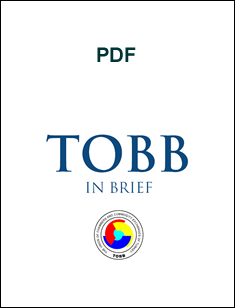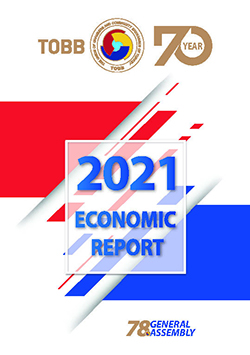Durable Consumer Goods Council convened via video conference

25.08.2025 / Ankara
The Union of Chambers and Commodity Exchanges of Türkiye (TOBB) Durable Consumer Goods Council (DTM), with the participation of TOBB Vice Chairman Ender Yorgancılar and under the chairmanship of Council President Fatih Kemal Ebiçlioğlu, came together via video conferencing to discuss current issues of the sector.
In his opening speech, TOBB Vice Chairman Ender Yorgancılar said that the durable consumer goods sector, which is one of the most exporting sectors of the country, has responded to the global crisis, Despite the disasters, it closed the period with a foreign trade surplus, while on the other hand, the contraction in foreign markets continued to have a negative impact on DTM exports.
Stating that the Council meticulously carries out its work in order for the sector to maintain its competitiveness, increase its share in the world market, adapt to international legislation and the digital transformation process, he thanked all members for their efforts. While all this is happening, he pointed out that our sector's efforts to combat the climate crisis by taking into account environmental impacts and its sustainability approach are role models for other sectors. TOBB Vice Chairman Ender Yorgancılar also reminded that TOBB is the chairman of the Carbon Market Advisory Board established within the scope of the law and stated that although the board does not have any voting rights, it will have a great impact on the decisions to be taken by the Carbon Market Board and that they plan to hold the first meeting of the board as soon as possible. Lastly, after providing information on the draft regulation prepared for the implementation of the Emissions Trading System, which was opened for consultation at the end of July, he expressed his thanks to the members who participated in this meeting today with intensive participation despite the holiday period.
- Developments regarding customs tariffs
Then, within the scope of the first agenda item, developments regarding customs tariffs were shared and a presentation was made on international trade and Türkiye. It was stated that the Suez Canal crisis, the Russia-Ukraine war and the Israel-centered events had an impact on supply chain security, and that the increases in raw material, energy and logistics costs put pressure on the global supply chain. The US declaration of a “national emergency” as of April 2, 2025, citing the foreign trade deficit, and the additional customs tariffs imposed by 10% on all countries and much higher rates on some countries were evaluated. In addition, information was provided on the exemptions granted to countries in strategic sectors such as steel, aluminum, automotive and semiconductors.
Afterwards, an informative presentation was made on the Turkish Cyber Security Law No. 7545 published on March 19, 2025. In the Cyber Security Law, which covers all real persons and institutions that exist, operate and provide services in cyberspace, it was pointed out that infrastructures hosting information systems that may cause loss of life, large-scale economic damage or security vulnerabilities when the confidentiality, integrity or accessibility of the information/data they process is disrupted are defined as “critical infrastructure.” Within the scope of the Law, it was shared that a “Cyber Security Presidency” will be established for the coordination of all activities related to cyber security in Türkiye, and that all institutions and organizations are obliged to submit all kinds of data, information, documents, hardware, software and other contributions requested in relation to cyber security to the Presidency in a prioritized and timely manner.
In addition to the agenda items, members raised the issue of the numerous tax burdens imposed on the industry by the DTM in different scopes. It was decided to take a detailed and holistic approach to direct and indirect tax burdens that weaken the competitiveness of the industry and to take initiatives.
Your message has been sent
Thank you |




